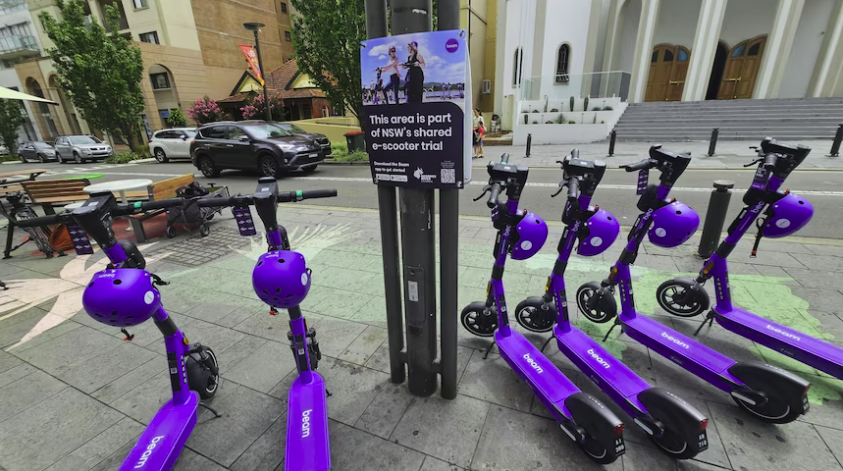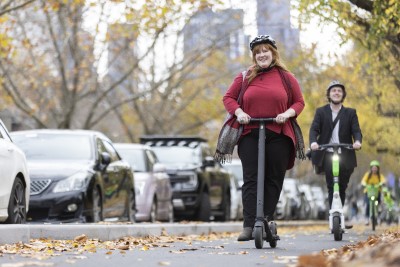The first trial of shared e-scooters in Sydney’s metropolitan area began in Kogarah today.
Key points:
- Shared e-scooters can only be used on roads with 50 km/h speed limits in the trial area
- An active transport expert says the trial zone is too small and will impact the trial results
- Trials are being held in five other regional centres around the state
Sixty scooters have been placed around Kogarah’s town centre and may be ridden in an area between St George’s Hospital, Jubilee Oval and Allawah, Carlton and Kogarah train stations.
For the next 12 months, riders can take the e-scooters to go 20kmh on roads with 50kmh speed limits and won’t be able to mount footpaths.
Georges River Mayor Sam Elmir says the council is pleased to be first in Sydney’s metro area to roll out the devices.
“It’s a really great way to showcase progress within our area and provide our residents with a different form of transport to scoot around,” Mr Elmir told ABC Radio Sydney.
“People are sick and tired of having to get in their vehicle and go down to the shops to get a bottle of milk or some burgers for lunch.”
Trials of the scooters were held in 2022 in parklands in Western Sydney, but were not run on any council roads.
The trial is one of six being held in NSW, with the others being held in regional areas including Wollongong, Armidale, Forster, Albury and Lake Macquarie.
Only shared scooters from provider Beam are part of the trial.
Privately owned scooters are not part of the trial and are still illegal to ride when not on private property.
Forced slow-downs to address safety
Scooters will only be able to be used on roads with 50kmh speed limits and may not be used on footpaths.
Geofencing technology in the scooters can detect when they near a footpath, Mr Elmir said.
“When they do get close to footpaths they will slow down to a 10kmh walking speed limit,” Mr Elmir said.
“Some people have some safety concerns but those safety concerns are being alleviated.”
Restrictions reinforce NSW’s ‘laggard’ status
The relatively small area and number of scooters has an active transport expert worried the trial is too restrictive and will produce negative results.
“You’re already reducing the number of prospective users that would be able to benefit,” Griffith University researcher Madison Bland said.
“That will also skew the final numbers.”
Mr Bland says New South Wales is a “laggard” when it comes to e-scooter adoption and should look to already completed trials in Brisbane.
“[In Brisbane] we have an effective system with a dual operator model that has a tried and trusted approach,” Mr Bland said.
“I think Transport for NSW could go ahead and just roll this out rather than just going ahead with another trial.”

